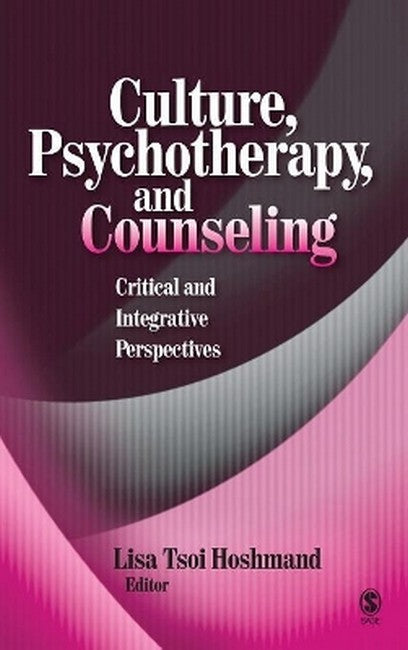Lisa Tsoi Hoshmand, Ph.D. is Professor of Counseling and Psychology at Lesley University, Cambridge, Massachusetts. She is the author/editor of three books and over forty other publications. Her recent work includes an edited book, Creativity and moral vision in Psychology: Narratives of identity and commitment in a postmodern age (Sage, 1998), an article "Narrative psychology" in the Encyclopedia of psychology (American Psychological Association and Oxford University Press, 1999/2000), the book chapter "Psychotherapy as an instrument of culture" in Critical issues in psychotherapy (Sage, 2001), and an article "Narratology, cultural psychology, and counseling research" (Journal of Counseling Psychology, in press). She has published and presented on cultural psychology, qualitative research methodology, clinical teaching, reflective practice, and transformative education. A Fellow of the American Psychological Association and a licensed psychologist, she has served on the editorial board of a number of journals in counseling psychology, theoretical and philosophical psychology, and community psychology.
Request Academic Copy
Please copy the ISBN for submitting review copy form
Description
Preface Acknowledgments PART I: INTRODUCTION 1. Thinking Through Culture - Lisa Tsoi Hoshmand 2. Culture and the Field of Psychotherapy and Counseling - Lisa Tsoi Hoshmand PART II: THERAPIST ACCOUNTS: REFLECTION, CRITIQUE, AND INTEGRATION 3. Psychotherapy and Counselling as Cultural Work - John McLeod 4. The Felt Sense as Avenue of Human Experiencing for Integrative Growth - Doralee Grindler Katonah 5. Integrating the World's Psychologies - William L. Mikulas 6. Hawaiian Psychology - William C. Rezentes, III 7. Toward a Feminist Ecological Awareness - Dana Becker 8. A Woman's View of Clinical Trauma Theory and Therapy - Susan H. Gere 9. Hermeneutics and the Moral Dimension of Psychotherapy - John Chambers Christopher 10. Cultural Conflict, Values, and Relational Learning in Psychotherapy - Del Loewenthal PART III: CONCLUSION 11. Summary and Conclusion - Lisa Tsoi Hoshmand About the Editor About the Authors Author Index Subject Index
"The Hoshmand book covers a wide range of literature on multiculturalism and makes an important provocative contribution to the field. The writing style reflects the complexity of multicultural topics as a positive feature, demonstrated in many specific examples." -- Paul B. Pedersen "Lisa Hoshmand has drawn together an outstanding group of critically aware mental health practitioner(s)...from widely divergent cultural experiences--Feminist, post-modern, holistic health, existential, Buddhist, Hawaiian. Faculty and students wishing to discover what it means to be a culturally situated, and morally and spiritually informed, counseling and psychotherapy practitioner will find this volume to be a virtual goldmine of insights and recommendations." -- Ronald B. Miller "Culture, Psychotherapy, and Counseling: Critical and Integrative Perspectives is a must reading for all mental health professionals and for students in counseling and psychotherapy courses. Both separately and as a collection, the book's chapters position culture as a central determinant of health and healing, and sensitize the reader to the absolute necessity of understanding the powerful spectrum of cultural forces that shape human relationships in general, and therapeutic encounters specifically." -- Anthony J. Marsella "Lisa Tsoi Hoshmand implicitly extends this metaphoric concept of circle to the meaning of culture in the counseling and therapy process. Her vision of a circle of life is based on an integrative understanding of culture as embedded in human experience in all of its facets." -- Giselle B. Esquivel * Contemporary Psychology: APA Review of Books * "In this volume, Hoshmand and her contributors both explicate and perform a much broader understanding of what culture is, and of the ways in which it inescapably does (and should) influence psychotherapeutic and counseling theory and practice. . . Virtually all of the chapters blend personal history, theoretical reflection and clinical material in interesting ways that enhance the reader's appreciation of the many contexts that surround and infuse the therapeutic encounter. Taken together, they persuade the reader of the need for therapists to assume a self-reflective and critical stance towards their own practices and professional culture. This book is a valuable contribution to this general project. It should be of interest to experienced counselors and therapists, as well as to students and those who supervise them." -- Suzanne Kirschner

